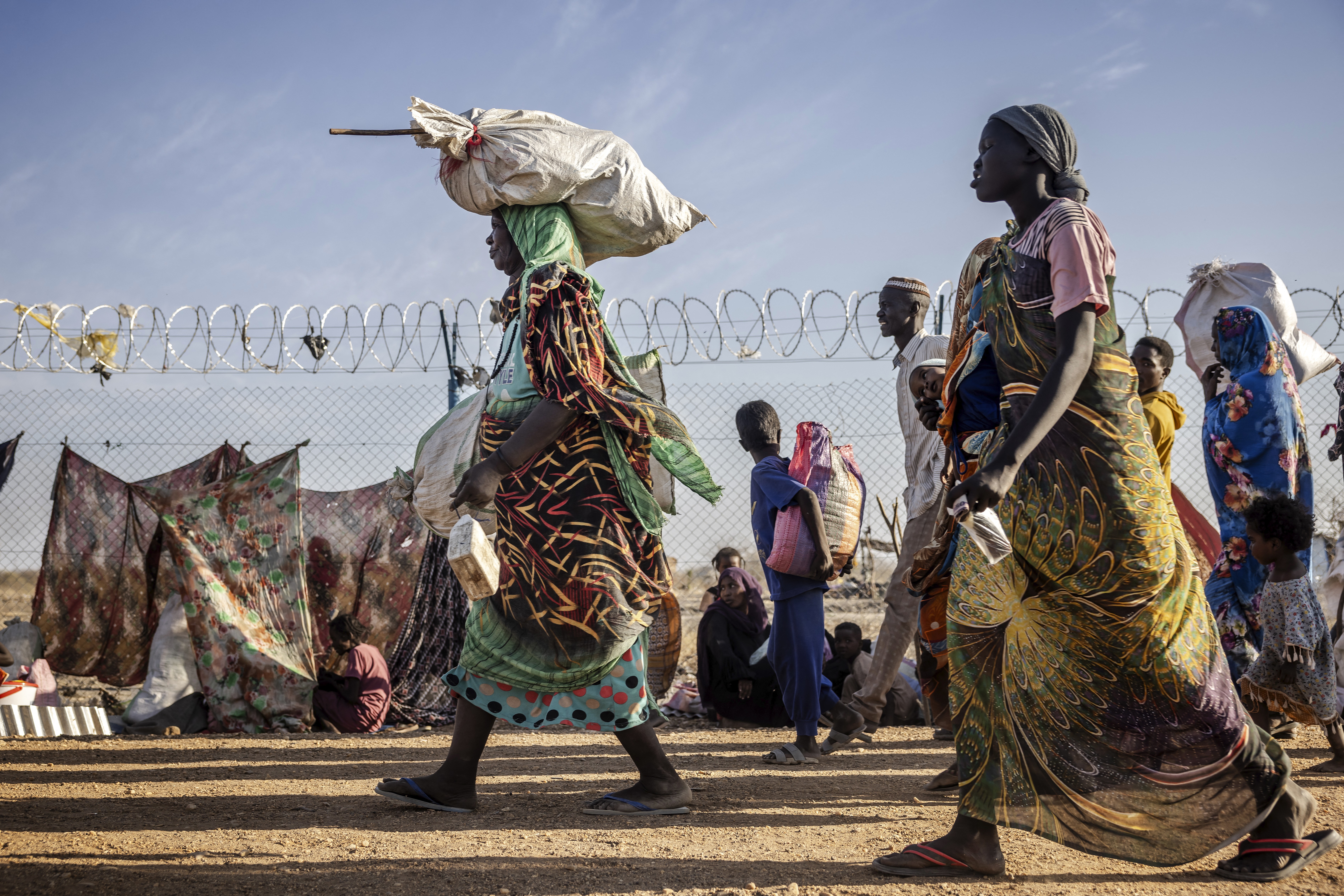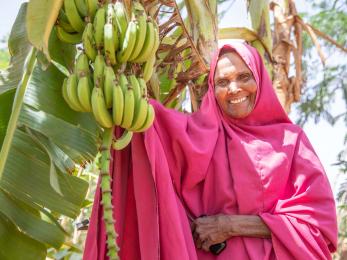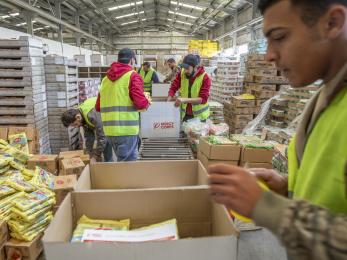Hunger crisis intensifies in Gaza
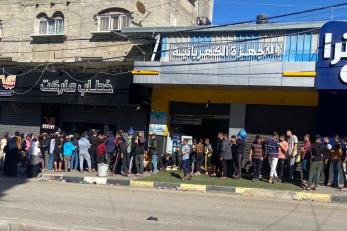
More than 20,000 people have reportedly been killed in Gaza since the violence began a few months ago. Now the humanitarian crisis is on the verge of a horrifying new phase: a recent UN report indicated that deaths from starvation may soon surpass casualties from airstrikes.
Up to 500,000 families could face famine-like conditions by February. Every household in Gaza is expected to fail to meet their food needs in the coming weeks. Nearly one in four households are facing starvation and famine—the most extreme, catastrophic, measure of food insecurity. Please read on for firsthand updates from our teammates in Gaza.
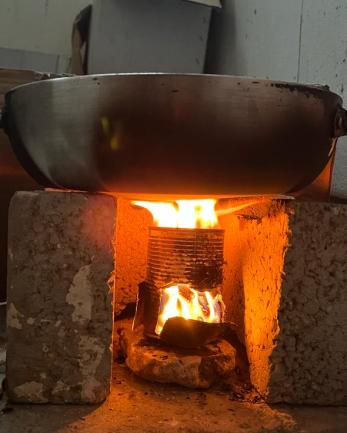
Life under siege: Reports from our team
Donia (all team member names have been changed for security purposes), a Mercy Corps team member in Gaza, shared what life is like for her family now that the temporary truce has ended, fighting has intensified, and winter has set in:
“With the days of the ceasefire/truce, there was a glimmer of hope that the war might end. During that period, we hoped to seize the opportunity to go out and find necessities for our children, but sadly, there was nothing in the markets to buy and alleviate our children's hunger.
As winter approached, we faced the harsh reality of not having blankets to keep our children warm. Each night, I hold them close, praying for an end to this war and that we are spared from any tragedy. We never anticipated that the war would last this long.”
Ruba, a team member staying at a Mercy Corps shelter in Rafah, spoke frankly about confronting “the specter of death numerous times each day” as she and her family face impossible decisions about where to go to remain safe:
“The decision to head to the shelter is challenging, given the hazardous road conditions and the prospect of facing even greater difficulties. How can we carry a mattress, blankets, and belongings without transportation? We resort to riding animals, cooking over an open fire, and praying to find basic necessities like a bag of flour in the market.
Being a mother in these circumstances is exceptionally challenging. I am a mother of four children…The amount of fear and anxiety in their eyes with every bombing breaks me. While I've managed to store some milk and diapers for my child, the growing unease arises as supplies run low, and the war shows no signs of ending. My thoughts also extend to those who couldn't afford to stockpile essentials and are displaced in the cold with inadequate shelter, clothing, and food.”

Ghassan, a Mercy Corps team member in Rafah, shared with us a hopeful moment of resilience and resourcefulness despite the hardships he and his family are facing:
“My brother used to stand in long lines starting at 4:00 A.M. daily in an attempt to get bread, but with no success. So we've decided to make bread at home. Luckily, we had a small amount of yeast, managed to acquire some flour, and today, we celebrated a small victory by baking our own bread. Since we have no fuel, we bake the bread using a traditional method. The markets have run out of salt, yeast, and even flour. While we fed ourselves today, we remain uncertain about what tomorrow holds for us.”
Mercy Corps is advocating strongly for a ceasefire, end to siege tactics, and humanitarian access at the scale required to meet the needs of millions of people. We’re also working hard to establish supply lines for essential, lifesaving items such as clean water, food, hygiene supplies, and shelter materials. Immediate aid is urgently needed to avert a further and terrible deterioration of this humanitarian catastrophe. Mercy Corps teams and partners are poised to ramp up our response as soon as humanitarian access at scale is possible, and all of us continue to support our colleagues who are living through this disaster.
